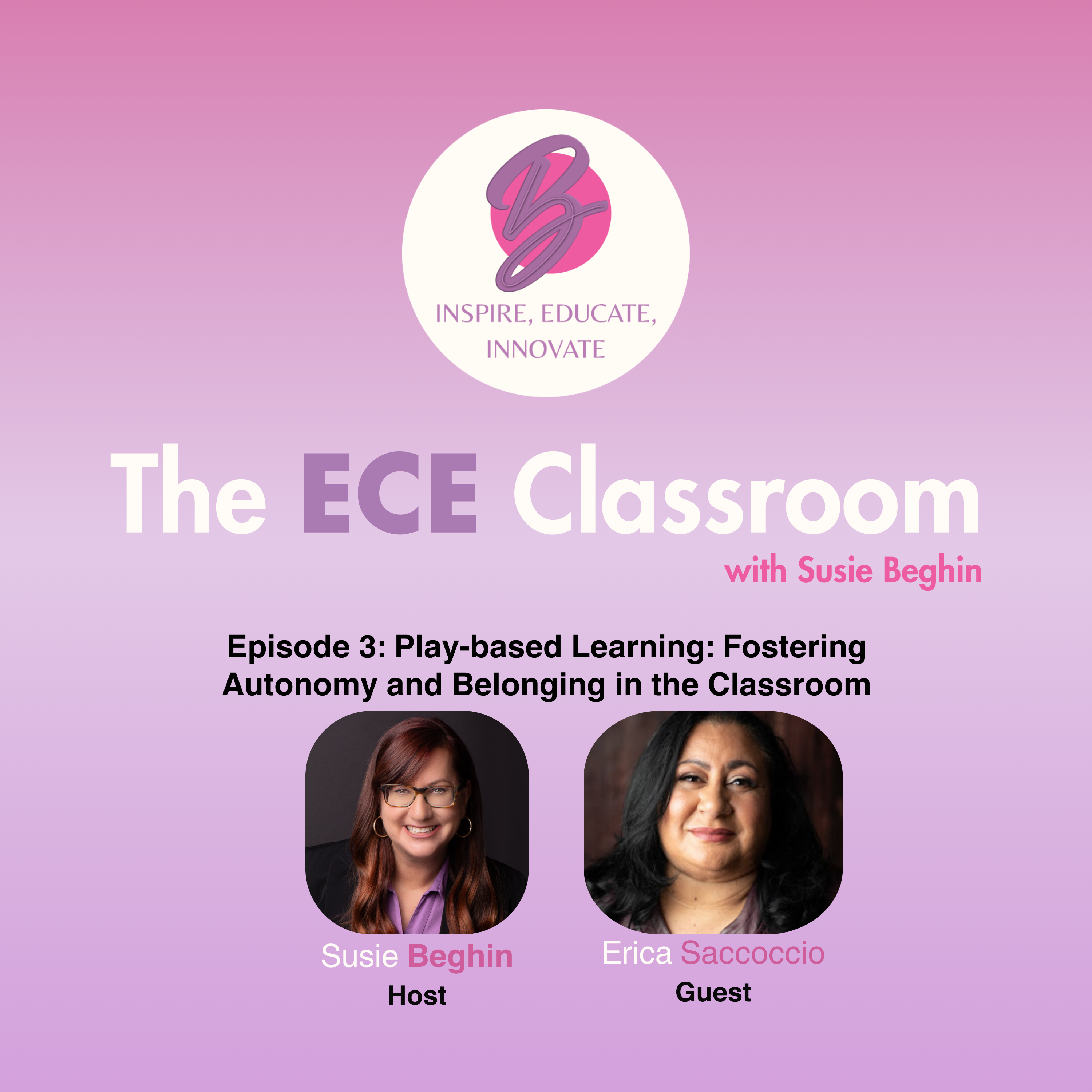The ECE Classroom – Recap of Episode 3 – Play-based Learning: Fostering Autonomy and Belonging in the Classroom
The ECE Classroom – Recap of Episode 3 – Play-based Learning: Fostering Autonomy and Belonging in the Classroom
by Susie Beghin, RECE, Founder of Alpha’s Discovery Kids
“Play-based learning is more than just unstructured free play” – Susie Beghin
In the latest episode of my podcast, The ECE Classroom, I had the pleasure of discussing play-based learning with Erica Saccoccio, owner of A Family Tree Child Care. Erica’s passion for early childhood education shone through as she shared valuable insights on making play-based learning both fun and educational.
Play-Based Learning: Fun with a Purpose
Erica emphasized that play-based learning should be engaging and enjoyable for children while also having a clear learning objective. This approach ensures that children are not only having fun but are also developing crucial skills. She highlighted the importance of using intentional materials and providing guidance to children during their play. By carefully selecting materials and activities, educators can create rich learning experiences that foster development across various domains.
Observation-Based Learning
One of the key points Erica discussed was the concept of observation-based learning. She stressed how important it is for educators to observe how children interact with materials and each other. These observations can provide deep insights into each child’s learning style, interests, and developmental needs, allowing educators to tailor their teaching strategies accordingly.
The Role of Teacher Engagement
Our conversation also highlighted the crucial role of teacher engagement and enjoyment in the learning process. When teachers are genuinely involved and enthusiastic about the activities, it creates a positive and dynamic learning environment. This not only enhances the effectiveness of the learning experiences but also makes the process more enjoyable for both teachers and children.
Key Topics Discussed
- The Role of Routines: Erica explained how incorporating play into daily routines can be a great way to engage children and promote their social and emotional development. Routine activities, when infused with playful elements, become more enjoyable and meaningful for children.
- Children’s Autonomy: Allowing children to have a say in their activities fosters independence and confidence. Erica highlighted the importance of giving children choices and respecting their preferences, which helps them feel valued and understood.
- Communicating with Parents: It’s essential to help parents understand the significant benefits of play-based learning. Erica and I discussed strategies for communicating with parents and involving them in their child’s learning journey, ensuring they appreciate the value of play in early childhood education.
My Five Key Principles of Play
During the episode, I also shared my five key principles of play, which are designed to create a safe and nurturing environment for children to learn, explore, and express themselves:
- Follow the Child’s Lead: Allow children to guide their play and explore their interests.
- Engage in Meaningful Conversation: Use play to have meaningful interactions and discussions with children.
- Ask Open-Ended Questions: Encourage children to think creatively and critically by asking questions that don’t have a single correct answer.
- Play at the Child’s Physical Level: Join children in their play environment, whether it’s on the floor, outside, or at a table.
- Combine Free Play and Intentional Play: Balance unstructured play with activities that have specific learning goals.
Takeaways from the Episode
- Play-based learning should be enjoyable and goal-oriented.
- Intentional materials and teacher guidance are crucial.
- Observation-based learning helps in understanding and guiding children.
- Routines can be playful and involve children in decision-making.
- Educating parents about the benefits of play-based learning is vital.
Stay tuned for more insightful discussions on early childhood education, parenting, and educator empowerment. Let’s continue to create engaging, purposeful, and joyful learning experiences for our children.
You can listen to the podcast on your favorite podcast platform, or by clicking here: https://spotifyanchor-web.app.link/e/OPl10EGzNIb

